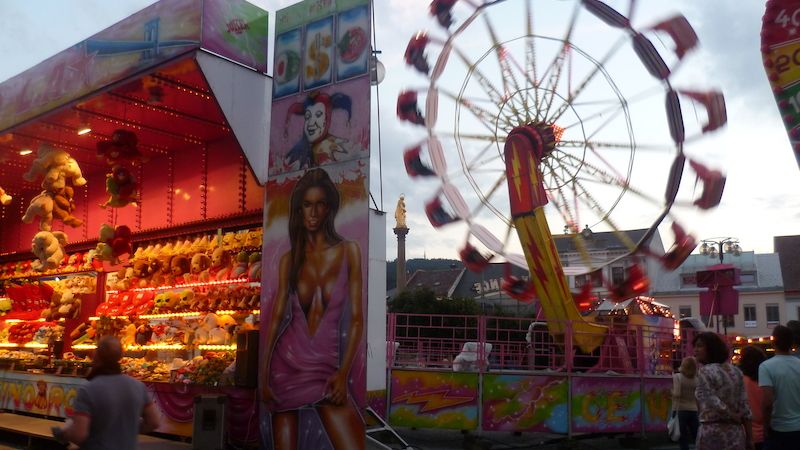You made your third feature film. As a theater artist, what attracted you to film directors?
I transferred my theater techniques to film and I’ve always been intrigued by how it turns out on screen. Seems interesting for a while, but I’ll probably repeat it in my next attempt.
Nevertheless, you are preparing another feature film called Rosentaal, what can you tell me about it?
If all goes well, it should be animated for the whole family, inspired by Jan Welzel’s character.
This traveler seems interested in you. You have written plays about him. What attracted you so much to him?
It seems Welzl is playing tricks on everyone who tries to interpret it clearly. However, I was blown away by his consistency in living his own life.
The main character of the film Grand Premiere is actor Pavel najdr, who likes to improvise as an actor even in everyday life. Did this happen to you too?
Yes, when I’m in the mood, I like to create surprise situations. Powerful improv eliminates clichés and phrases.
Is there always a void behind them? Can’t they be fixed points, reliable pillars of consciousness to drive situations, stories, as we all know them?
Cliches and phrases are postulates and attitudes that have lost their validity and become banality. An improvist has to be able to sensitively distinguish when it’s banality or, as you put it, “conscious support” or rather a personal attitude.
In the film Grand Premiere, he plays the director of a cultural center who reports to his secretary.
Photo: Falcon
Why did actor Pavel imčík, who played najdr, choose the lead role in the film Grand Premiere?
Luboš Smékal and I agreed to an imčík during a Honey production practice at Circus la Putyka. Pavel is the closest we have to our idea of a Pavel najdr, and we wrote the character knowing that he would play it.
Do you like mystification? Why?
It’s no longer hot because mystification, such as politics or the media, has almost become the standard. But basically, I like mystification because it destroys eternal truths and trains us to be ready for anything.
Has it ever happened to you that someone took you out with a mystery?
Yes, friends were planning to celebrate my round birthday and they managed to pretend that instead of celebration, we were going to take a trip to Jeseník with the theater.
How did you react when you broke up?
I appreciate it. It was a nice birthday.
You are not afraid to show awkwardness. Is awkwardness a theme for you?
Yes, awkwardness does disarm and exposes our pride and arrogance.
You set the Grand Premiere scene in Olomouc. What’s your relationship with him?
Olomouc is the golden middle between Vyšehoří, which is a small village in the Olomouc Region, where I was born, and Prague, where I live and work. I’m at home in Olomouc.
You play the director of a cultural center who is not very interested in culture. Do you often meet such officials?
Director Grunt is more like the previous regime, but it’s true that today’s politicians find the Ministry of Culture ungrateful. As Grunt put it, “Small money, big deal.”
You write the screenplay with psychologist Lubomír Smékal. How did your collaboration happen?
At the elementary school in Zábřeh in Moravia, we started dramatizing The Three Musketeers in fifth grade. After elementary school, we took a break and around the age of 60, due to lack of other entertainment, we continued to write scripts for films and plays.
Writing a screenplay with a childhood friend? That sounds sentimental! Are you sentimental?
Yes, there is nothing wrong with sentimentality. I like.
Is it important to you that you have known your colleagues and co-workers for a long time? Or could you be excited about working with someone new?
I choose my collaborators according to the type of project I am preparing. Of course, it’s nice when I can rely on previous good experiences, but working with someone new can bring new stimulation and inspiration.
Director Miroslav Krobot
Photo: Milan Malíček, Law
Some of your roles have become iconic, for example the bus driver of Tour Participants or football coach Pepík Hnátek of Okresní přebor. However, you discover your potential as an actor more slowly than a director. How do you see yourself as an actor, what makes acting better than directing?
I have worked with actors throughout my professional life and I tried to teach acting at DAMU for almost twenty years. It’s very interesting to try out my acting skills. Otherwise, acting is a much more comfortable profession than directing.
Your most recent role was in the film If It Will Burn. Right at the beginning of the film, you start the chainsaw and go to cut branches. He came down in no time. Is it really like that or is it a hoax?
It’s really me and I’m proud of it.
This film is about the power of prejudice. Is it comedy or drama for you?
For me, it’s important that this film is told with humor and has a comedic vision of the world, even when dealing with very serious issues. I love it. That kind of humor is close to me, so I quite enjoy the role.
Do you have personal experience with firefighters?
No, but if I lived in the village, I would probably be a member of the choir. At least it’s a good habit in the village.
The films in which you act and which you direct often take place in rural, even provincial, settings. After all, even your first film directorial debut, Díra u Hanušovice, is devoted to this topic. What is the proportion of cities and villages in your life?
I’m seventy, and at this age people like to go back to childhood memories. I began to observe myself in this sense and something would come from it.
But basically I like to express myself about the world I know. And it’s, for example, a village.

“Unapologetic social media guru. General reader. Incurable pop culture specialist.”







